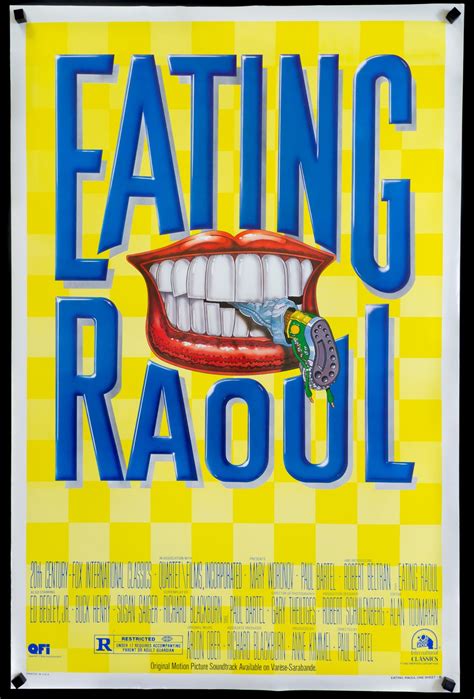Eating Raoul

Description:
Eating Raoul is a black comedy film about a couple who resort to killing swingers in order to finance their dream restaurant. As they get deeper into their criminal activities, they find themselves caught up in a series of hilarious and bizarre situations.Keywords:
Black Comedy, Cannibalism, Satire, Sexual Repression, Dark HumorWhat is the story of Eating Raoul?
"Eating Raoul" is a dark comedy film released in 1982, directed by Paul Bartel. The story follows a married couple, Paul and Mary Bland, who run a struggling wine and cheese shop in Los Angeles. To improve their financial situation, they devise a plan to murder wealthy, promiscuous men and rob them. Their scheme spirals out of control when they accidentally kill a man named Raoul, who becomes a pivotal figure in their lives. The film explores themes of morality, greed, and the absurdity of their actions, blending humor with satire.
Is there a sequel to Eating Raoul?
As of now, there is no official sequel to "Eating Raoul," the 1982 cult classic comedy directed by Paul Bartel. The film, which follows a married couple who turn to murder to finance their dream, has maintained a dedicated fanbase, but no follow-up has been produced. While there have been discussions and interest in the film over the years, nothing has materialized into a sequel. The original remains a standalone work celebrated for its dark humor and quirky characters.
Where was Eating Raoul filmed?
"Eating Raoul" was primarily filmed in Los Angeles, California. The movie, released in 1982, showcases various locations around the city, capturing its unique atmosphere and character. The film, directed by Paul Bartel, is a dark comedy that follows a married couple who resort to murder to finance their dream of opening a restaurant. The Los Angeles setting plays a significant role in the film's tone and storyline.
Is Eating Raoul a satire?
Yes, "Eating Raoul" is a satire. Released in 1982, this dark comedy film, directed by Paul Bartel, critiques the moral decay of society and the absurdities of the American dream. It follows a couple, Paul and Mary, who resort to murder and cannibalism to achieve their financial goals. Through its exaggerated characters and absurd scenarios, the film comments on issues such as class struggle, sexual repression, and the lengths people will go to for wealth, all while maintaining a humorous and ironic tone.
Explore More Categories:
Intimate Journey Mandalorian Home Invasion Betrayal Indigenous Cinema Trauma Paradox Iceland Urban Decay Circus Deception Personal Growth Corporate Ethics Indian Cinema Tennis Family Tragedy Neglect Dreams Swordsmanship Poetry Psychological Drama Historical Biopic Crime Underworld Heartbreak Slow Burn